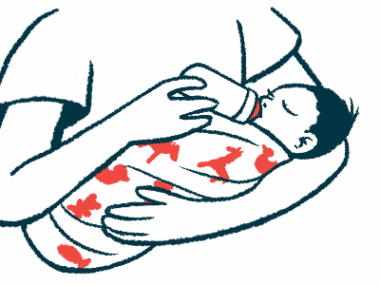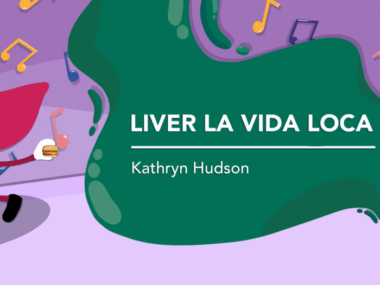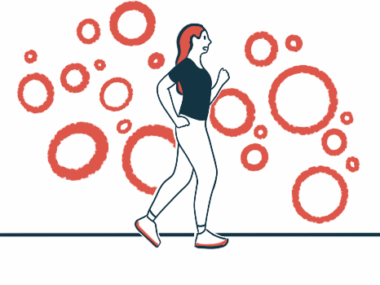Cholestasis common in COVID 19-linked ARDS, study shows
Complication linked to worse chances of survival in those with severe disease
Written by |

Cholestasis is a common complication among critically ill people with COVID 19-associated acute respiratory distress syndrome (ARDS), a life-threatening form of respiratory failure, a study in Austria showed.
Greater disease severity; longer use of the powerful pain medicine ketamine; and extracorporeal membrane oxygenation (ECMO), a type of artificial life support that can help a person whose lungs and heart aren’t functioning correctly, were found to be significant risk factors of cholestasis in this patient population.
Cholestasis was significantly associated with worse odds of survival among COVID-19-associated ARDS patients, highlighting “the importance for intensive care physicians to pay particular attention to this complication,” the researchers wrote.
The study, “Presence of cholestasis and its impact on survival in SARS-CoV-2 associated acute respiratory distress syndrome,” was published in Scientific Reports.
Cholestasis refers to stalled or stopped flow of bile, a digestive fluid that’s made in the liver and normally flows out to the intestines through a series of tubes called bile ducts. The backup of bile in cholestasis can set the stage for serious liver injury.
Cholestasis-COVID link
Emerging data suggest that people with COVID-19 may be at increased risk for cholestasis and other forms of liver problems. This may be due to several factors that can damage the liver, including the SARS-CoV-2 virus itself, multiple treatments used to manage COVID-19, and low oxygen levels associated with severe ARDS.
ARDS, the most serious complication of COVID-19, is a type of lung failure due to fluid buildup in the lungs and low blood oxygen levels.
Still, “data on clinical outcome of liver injury – particularly cholestasis – in patients with COVID-19 are scarce,” the researchers wrote.
The team of scientists in Austria reviewed the frequency of cholestasis, its risk factors, and its effect on clinical outcomes in 225 adults with COVID 19-associated ARDS. All were treated at the intensive care unit (ICU) of a single hospital in Vienna between March 2020 and March 2022.
Patients had a mean age of 56.2, and 68% were men. They stayed in the ICU for a median of 30 days, and 63% survived the ICU. Fewer than one in 10 patients had preexisting chronic liver disease.
Cholestasis was defined as having blood levels of alkaline phosphatase (a liver damage marker) 1.67 times higher than the upper limit of normal for at least three days consecutively during the ICU stay. By this definition, more than half (53%) of the patients developed cholestasis at some point during their ICU stay.
Clinical data suggested that COVID-19-associated ARDS patients with cholestasis had more severe disease. They stayed in the ICU for twice as long (40 days vs. 18 days) and were significantly more likely to require medical interventions like invasive mechanical ventilation (99% vs. 87%) or ECMO (78% vs. 35%).
The cholestasis group also had significantly higher peak levels of certain inflammatory molecules, including IL-6, in the blood, and received several treatments, including ketamine, for significantly longer than patients without cholestasis.
Statistical analyses adjusted for potential influencing factors showed that longer duration of ketamine use, ECMO treatment, higher peak IL-6 levels, and more severe disease at ICU admission — based on a higher Sequential Organ Failure Assessment (SOFA) score — were independent risk factors of cholestasis among critically ill COVID-19 patients.
SOFA assesses the number and severity of failed organs, and is a predictor of ICU mortality.
The researchers said it’s unclear whether the link to longer ketamine use is because ketamine itself can increase the risk of cholestasis or because patients who had more severe disease were more likely to receive this medication. Until further data can clarify the issue, clinicians should be cautious about using ketamine in people with severe COVID-19, they said.
Additional statistical analyses showed that cholestasis was significantly associated with a 58% lower chance of survival after six months.
Most of the patients with cholestasis (73%) were treated with ursodeoxycholic acid (UDCA), a common first-line cholestasis treatment sold as Urso and Actigall. However, UDCA treatment appeared to have no influence on the risk of death in patients with cholestasis. “A substantial proportion of patients (22%) in our [study] received very low doses … of UDCA, probably limiting its therapeutic impact,” the researchers wrote, adding that further studies are needed to understand whether, and at what dose, UDCA may be beneficial to people with COVID 19-related cholestasis.
Overall, “the occurrence of cholestasis is a common complication in patients with SARS-CoV2-induced ARDS and is associated with disease severity,” while it “appears to have an independent impact on overall survival,” the researchers wrote.
“Future prospective studies are needed to confirm effects of specific risk factors for the development of cholestasis and especially to evaluate the benefits of UDCA treatment,” the team concluded.







